Text
I can't screen record on my laptop without this game actually having a stroke, but in Marvel's Avengers, if you as Bucky go into Thor's room and interact with Mjolnir, Bucky will say, in just about the most heartbreaking voice, "You don't need to tell me. I know."
AND THEN HE TRIES ANYWAY 💔💔💔💔
6 notes
·
View notes
Text
I’m thinking about Bruce Banner in the Marvel’s Avengers game and how book recommendations and lending are a recurring element in his social relationships.
If Natasha interacts with the bookshelf in Bruce’s room on the Chimera it prompts this conversation where he reveals had actually wanted to be a librarian when he was younger:
Natasha: “So, are these organized by author or subgenre?”
Bruce: “Both.”
Natasha: “You ever considered a career as a librarian?”
Bruce: “Hah. It was my childhood dream. Ahem.”
If Kamala interacts with the bookshelf then it’s shown that Bruce regularly lends her books:
Kamala: “Got anything new?”
Bruce: “No. Not since last time. Don’t you still have a couple?”
Kamala: “I read those already.”
If Thor interacts with the bookshelf then it’s shown that Bruce is no longer lending him books:
Thor: “Can I borrow another?”
Bruce: “No. No. No. Last time it came back waterlogged.”
Thor: “What? I didn’t like the ending.”
There’s an interaction with Clint that shows that Bruce has been lending books since prior to the events of the game:
Bruce: “Did you, uh, did you finish that book I lent you?”
Clint: “Wait a minute. You don’t actually assume I’m gonna read it, do you? You lent it to me like six years ago.”
Bruce: “Nah, just… trying to make polite conversation.”
Clint: “Oh… your chit chat needs work.”
And there’s an interaction with T’Challa about a book that Bruce recommended him:
Bruce: “So, did you get that book I recommended?”
T’Challa: “I did. A quick read, but a good one.”
Bruce: “Uh… it was 900 pages.”
T’Challa: “I read often.”
I really like Bruce’s room being an informal library on the Chimera and I think it’s interesting how Bruce has this relatively calm hobby of books that he enjoys and safely discuss with the Avengers. There’s quite a few interactions between the Avengers about their prank war that Bruce is explicitly not involved in on account of him being too mature for that not handling the surprises well. I like that Bruce has his own thing as a part of their Avengers community.
In the Clint interaction, it kind of seems like a crutch he’s falling back on when he doesn’t know what else to talk about. But, particularly with him regularly lending books to Kamala, I think it could also cause positive feelings for Bruce. It’s nice to recommend or share a book with someone and have them enjoy it or learn something!
7 notes
·
View notes
Video
youtube
videogame Bucky is SO CUTE AND AWKWAD AND SWEET I LOVE HIM SM
#i don't care what glitches this game beats me over the head with. they can pry it from my cold dead hands.#bucky#kamala#marvel#marvel's avengers
58 notes
·
View notes
Text
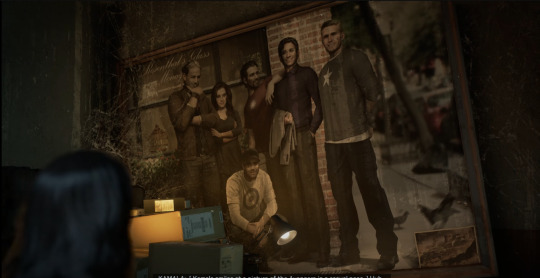
My emotional support game. Will be bawling my eyes out for the next 2-3 business days.
0 notes
Text
@stevetonygames team Future | Square "Poker Face" | 300 words | Earth-TRN814 (Marvel's Avengers game)
"Is something wrong, Tony?"
Tony quickly turned back to his workstation from where he'd been staring at Steve. "Nope, nothing at all. All good here, Cap."
Silence filled the room as Tony continued tinkering with Kamala's suit and Steve's gaze burned a hole through the side of his head.
"You have a terrible poker face," Steve finally said. "What's up?"
Tony sighed and put the screwdriver down. It figured that even after five years, Steve could still read him so easily.
"I just…" Tony turned to face Steve, leaning back against the workbench in an attempt at looking casual. "I'm struggling to wrap my head around the fact that you're here. Alive."
Steve frowned, sharp eyes flitting over Tony's features as if they held all the answers he was looking for. Tony just prayed Steve couldn't see his palms sweating or hear the staccato beating of his heart.
Then, Steve smiled: a boyish, lopsided grin that made him look so much younger. "You want another hug, huh?"
Tony's face flamed hot and he sputtered indignantly. "For the last time, it wasn't a—"
He trailed off as he noticed that instead of laughing at his floundering, Steve was biting his lip and looking at Tony in…anticipation?
"...It was absolutely a hug," Tony said. "And I would like another one. Right now."
With a warm chuckle, Steve stepped closer and unceremoniously pulled Tony against him, big arms circling Tony's shoulders.
And Tony went embarrassingly easily, slumping against Steve and burying his face against a kevlar-clad shoulder in a mirror of their reunion on the satellite. Steve didn't seem to mind: in fact, he just sighed happily and held Tony even tighter.
"Kinda seems like you wanted a hug," Tony observed.
"No I didn't," Steve mumbled.
Tony smiled. "You're such a bad liar."
#i don't think people understand how profoundly i love this game (at least so far)#i need to eat this iterstion of the avengers WHOLE.#stony#marvel#marvel's avengers
56 notes
·
View notes
Photo
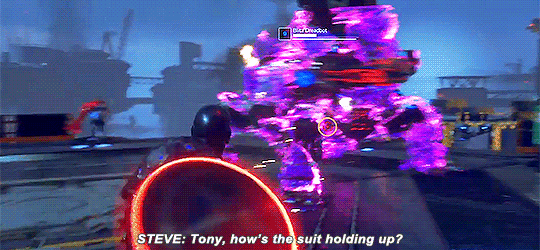

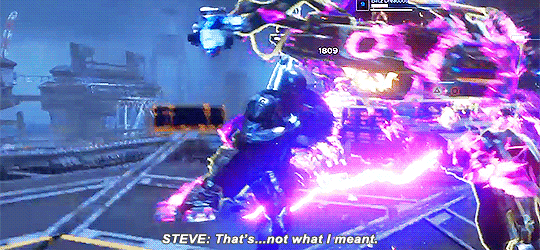
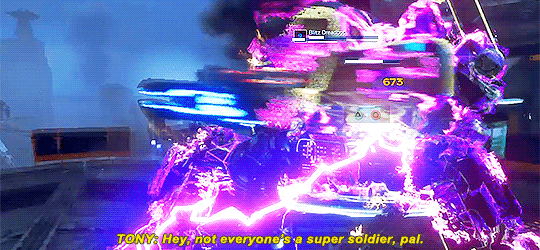
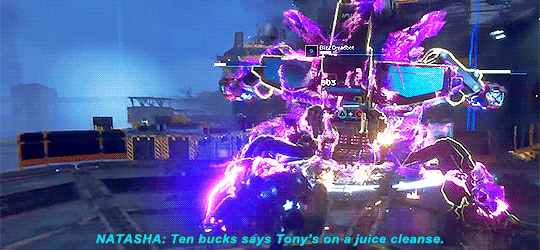
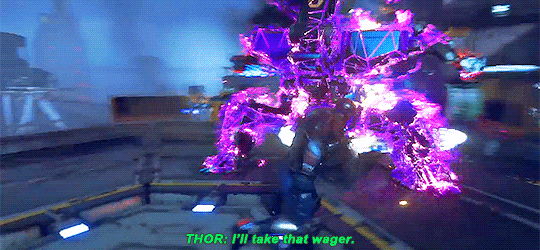
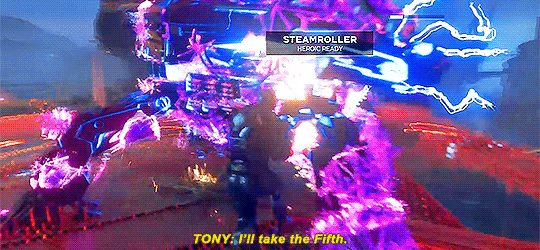
Marvel’s Avengers (2020)
#the carnal desire to write about specifically Marvel's Avengers' flavour of the team#marvel#marvel's avengers#the avengers
1K notes
·
View notes
Text


mfw i decide to remake a comic from 8 years ago
12K notes
·
View notes
Text
Gahan commission for @gayautisticraccoon. Thankyou for your interest and support 🌟💖
If you guys want to see your favorite characters kissing and do fruity things drawn by me, send DMs or email ;)
visit fr-wiwiw.carrd.co for more information!

261 notes
·
View notes
Text
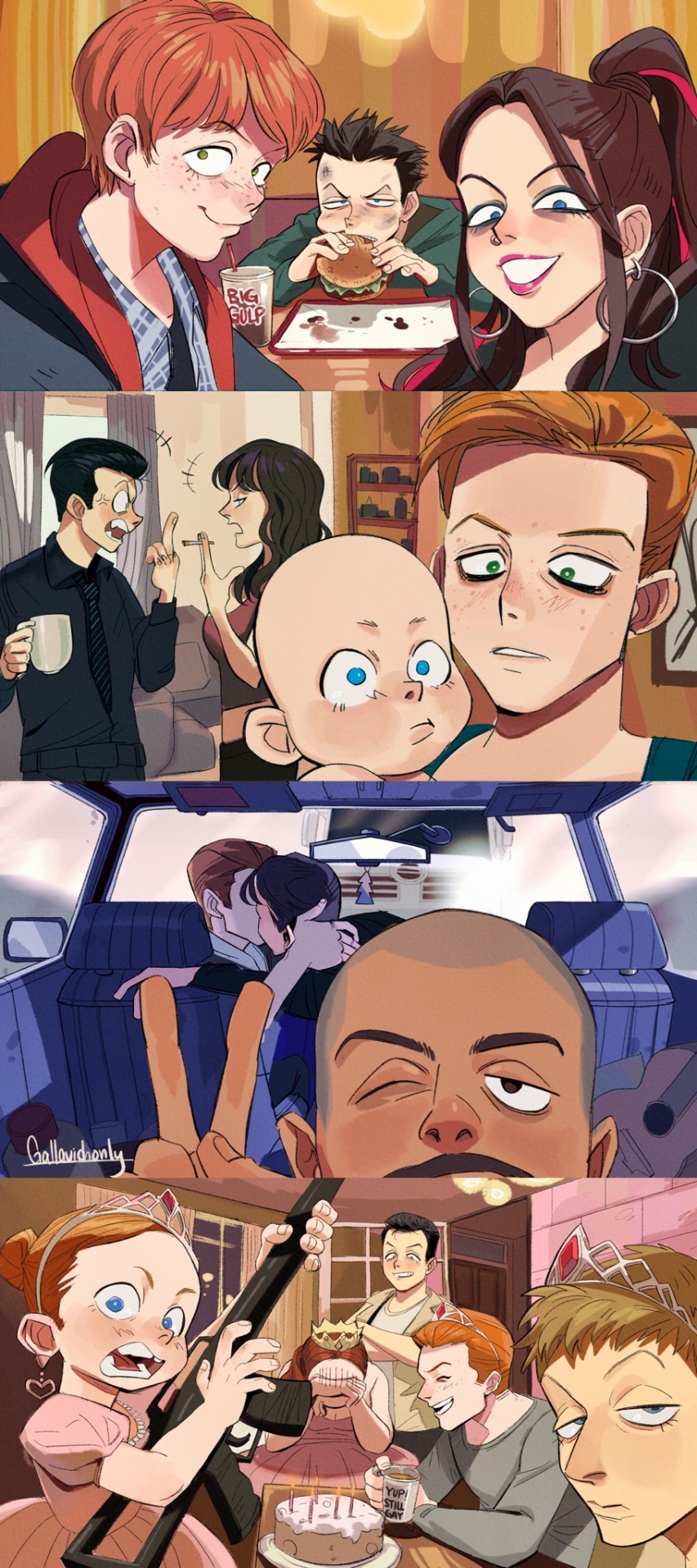
⭑๋࣭༄˚ ༘ ೀ⋆。˚ Memories .𖥔 ݁ ˖༄
2K notes
·
View notes
Text
i am sooo normal about lee dongsik having the universal donor blood type

i am sooo normal about han joowon having the universal recipient blood type (literally the opposite)

I AM SOOO NORMAL ABOUT KIM SOOJIN DOING ALL OF THIS ON PURPOSE
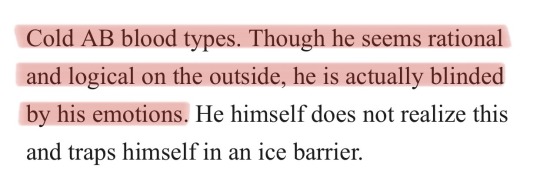


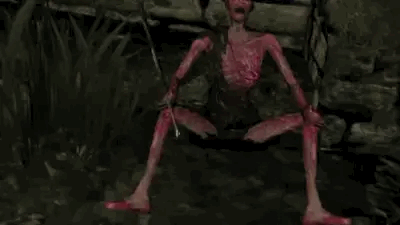
#if i had a nickle for every time i went insane over a universal donor/universal recipient ship#I'd have two nickles. but it's weird that it happened twice right?#beyond evil#jwds
234 notes
·
View notes
Text
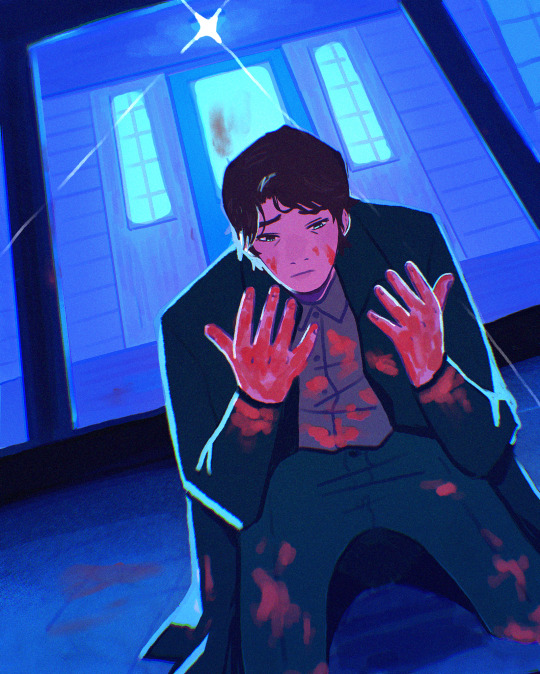

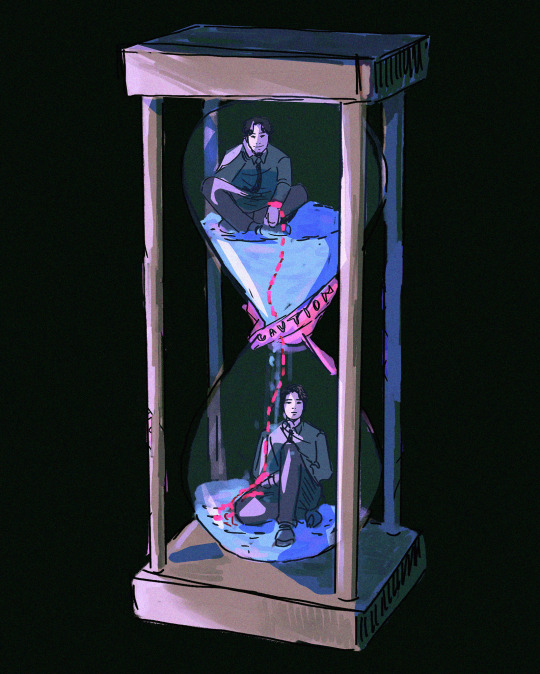
beyond evil brainrot here r some sketches 😵💫
first one is based on this ep:

682 notes
·
View notes
Text

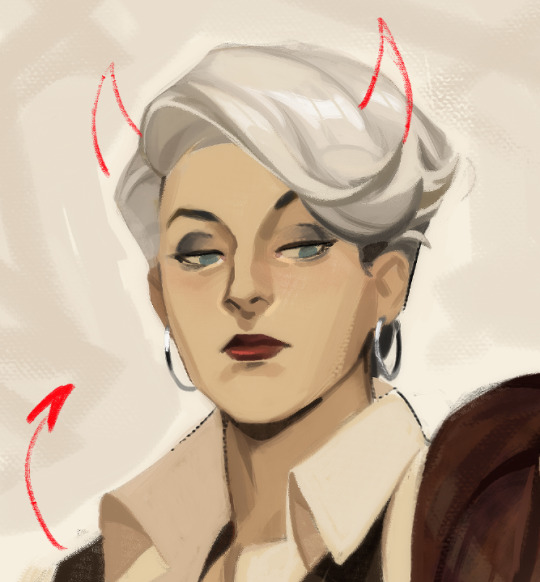
2K notes
·
View notes
Text
steve isn't the type to go for anything fancy or flashy but he can tell the difference between the real thing and the cheap thing, and tony just buys steve stuff sometimes and steve takes whatever tony gives him, so he gets used to the good coffee and the good steak and expensive shampoo and well-made clothes and how full grain leather watch straps feel on his wrist and how top clarity grade diamonds catch the light, and there's a moment where tony catches steve wrinkling his nose at the wine being served at an event and tony is absolutely vibrating out of his body over the moon because steve is spoiled
#this post just fused with my skeletal tissue#like wow so true OP you really have it down#marvel#stony#steve#tony
1K notes
·
View notes
Text
it’s literally been a decade since i watched house so if there was a baby trap episode i’ve totally forgotten it but in my heart i know that if he only could house would fake baby trap wilson in two seconds. and like wilson would know that house was fucking with him and instantly realize the pregnancy was fake, so he would probably put something in house’s food or push him down a small flight of stairs prove it BUT house would know that wilson would automatically assume the pregnancy was fake so he would be left with no choice but to really get pregnant and then once the world collapsing horror truly set in for wilson, he’d make wilson go with him to get an abortion. and it’s not that i think wilson would be above baby trapping house, but he’d know it was wrong to make a child deal with them if he ended up losing their intricate game of (real) fake baby chicken and in this one case the guilt and internalized homophobia would win out over his desire to fuck with house’s mind—whereas like house doesn’t have these simple hang-ups
81 notes
·
View notes
Text
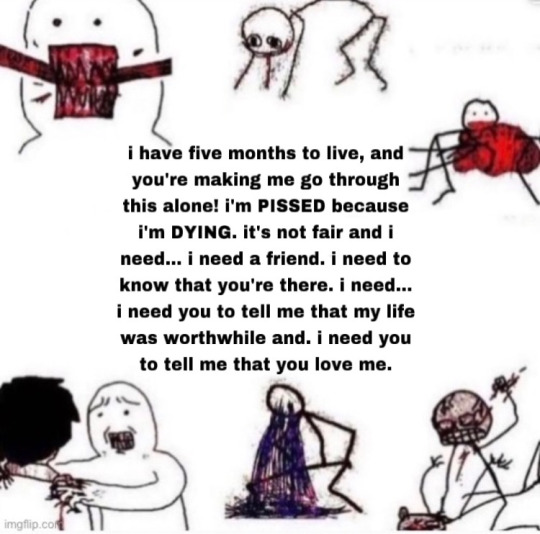
having feelings over everybody dies today
672 notes
·
View notes
Text
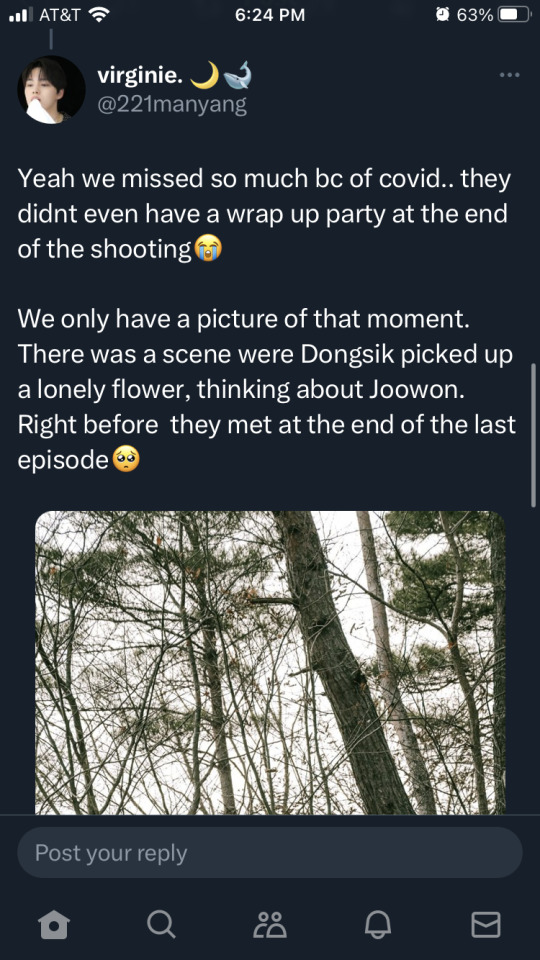

can you believe this? would do anything to know what kind of flower he picked when thinking of juwon. would do anything to see the cut scenes 😭😭😭
137 notes
·
View notes
Text
Superheroes and ethics
I realized that I wrote this last month on Patreon and forgot to post it here. I got asked to write meta about superhero ethics with regard to Steve and Tony. I ended up writing mostly about how Captain America's Plot Armor interacts with his principles.
I have been asked to talk about ethics and philosophy with respect to Steve and Tony. Unfortunately, the only philosophy-adjacent disciplines that I know well enough to speak about with any confidence are formal semantics and pragmatics, which isn't really all that useful in daily life unless you'd really like to learn about the differences between entailment, presupposition, and implicature, and also the Gricean maxims of conversation, which are great if you want to completely ruin conversations by violating them as many times as you possibly can.
So I'm not a philosopher, sorry.
But! I can talk more informally about Steve and Tony and ethics.
And I know there's been a lot of meta -- and actual books -- written about their differing views. I have a book here, A Philosopher Reads Marvel Comics' Civil War: Exploring the Moral Judgment of Captain America, Iron Man, and Spider-Man, by Mark White, which I have not read yet but it sounds like this is probably the book you want to read if you want an actual philosophical analysis of this stuff. Judging by the reviews, the author decides to associate Tony with utilitarianism and Steve with deontology. That is probably fun. I am in no way qualified to talk about it.
On an informal level, the thing I find fascinating about them is that, when it comes down to it, Steve and Tony are really not all that different.
I have been thinking about this for a while, because the last time I left anonymous asks open on Tumblr, the final ask I got before I decided that this wasn't a good idea was someone who wanted to pick a fight with me by asserting that Steve/Tony was a bad pairing because "they don't think alike, have different morals, different interests, and different emotional issues that the other is not capable of helping out with." This is one of the reasons why I don't have anon asks on anymore. But I thought it was honestly an interesting thing to think about.
So I have been pondering this on and off for a while, and I realized that the thing that really bugged me about it was that their general thesis was that Steve and Tony were bad for each other because they have nothing in common. See, I don't think that's true. I think they have a whole lot in common. But I am also willing to acknowledge that canon likes to put them in situations where they're at odds with each other and it seems fairly easy to come up with circumstances that will cause them to want to beat the stuffing out of each other. But, crucially, this doesn't mean they have nothing in common.
(I also think they actually have a lot of similar interests and are actually very capable of helping each other with their emotional issues, which canon demonstrates multiple times. But that'd be a different essay.)
For me, one of the reasons why Steve/Tony are so compelling as a pairing is because they are so similar. Let's call it, like, 95% similar. They are remarkably like-minded when it comes to their values and how they view the world. It's just that then they can fight, bitterly, over the remaining 5% of differences.
They work well together most of the time and it's just the bits where they almost work together that are so agonizing and provide so much material for fandom. Because it's not like they don't understand where the other one is coming from, what they want, or why they want it. They do. They just don't understand how the other person can come up with a different path to the answer given their shared goal and shared values. Steve doesn't understand how Tony is willing to do something that Steve thinks is wrong, and Tony thinks, I don't know, that Steve's ideals are too naive for the real world. Tony thinks Steve's plans are unrealistic and Steve thinks Tony's plans are unacceptable.
There's also an additional complication, which is that Steve as a character has a lot of plot armor that Tony doesn't. Steve decides what he thinks is moral and what he thinks is immoral, and he simply does not do the immoral thing. And the thing is that the narrative helps Steve out with this. It's fine if he's idealistic! It's even okay if his ideals are naive! He almost never has to go against them. I am saying this as a big fan of Steve. The story really helps him out.
For example, Steve thinks that killing is wrong, so he doesn't kill anyone, generally speaking. (Depending on the retcon you believe in, he may have in fact killed zero people in World War II, which is kind of ridiculous.) But in situations where the best of the options involves killing someone, someone pretty much always ends up dead. It's just that someone else does the dirty work. Steve surrounds himself with a lot of spies and assassins (Bucky, Sharon, Natasha) and those people kill the people who need killing.
In Civil War, Steve believes Registration is wrong, and he never has to change his mind. He probably still believes it's wrong. Instead of going on trial, he dies; he never has to face the consequences of any of his actions. The narrative shields him from that. When he comes back to life, Registration is gone and he gets a pardon from the president. It's all taken care of. He causes a lot of damage, and he doesn't even have to say he's sorry for trying to bash Tony's face in, in public, with witnesses, after having destroyed what looks like several city blocks.
So Steve never compromises his principles, because he has the luxury afforded to him by the plot so that he almost never has to be in a situation where he'd have to decide whether he should compromise his principles, say, for the sake of the greater good. He doesn't have to make that choice, because Marvel's not interested in writing stories where Steve has to make that choice. So it just… doesn't come up. He almost never has to put his ethics to an actual test. If you hand Steve the trolley problem, he'd just say, well, I'd save everyone. That's not an actual option in the trolley problem. But he's pretty much always going to be in a plot where he gets to do the right thing and save everyone.
Tony, though? Tony has to do terrible things for the sake of the greater good all the time. He doesn't get to opt out of the decisions. Even on a personal level, he has to do terrible things to himself. He has to decide probably at least half a dozen times whether he should wear the armor even if wearing the armor is hurting him -- say, when he decides to take on the LMD in the arc where he gets his first artificial heart, or in Armor Wars II, or in that storyline in the middle of Busiek's run after he gets beaten up by the Mandarin. And he always decides to wear the armor no matter what the personal cost is to his body. He ends up in a lot of fights where he has to take pretty bad damage to save the world -- and while Steve would also make that decision, Steve's going to heal up and be fine, like in his recent run where Bucky shoots him in the shoulder. He has a healing factor and he's fine in a couple weeks. Tony breaks his back in order to save civilians and then gets addicted to morphine and ruins his life for a good long while. That kind of stuff, with lasting physical consequences, just doesn't happen to Steve. Let's not talk about Streets of Poison.
It's pretty obvious when you look at their biggest fights (say, Civil War and the incursions) that Tony believes that the ends justify the means, and Steve doesn't. However, Steve doesn't exactly have usable alternate suggestions. The plot armor helps him out there. Steve espouses extremely noble ideas, life and liberty and all that… that are not actually workable plans.
And because of how the narrative treats him, he doesn't really need to have workable plans, either. It's not like he actually uses them. Because he's just going to be fine. (Except in the incursions, but everyone came back to life afterward so it's all fine.)
Steve doesn't like the SHRA. Okay. Fine. He believes it's an unjust law. His plan is apparently to just… keep fighting Tony and anyone else who tries to take him into custody for not registering. What's his endgame? Does he have one? His plan appears to be "be on the run from the government forever." As far as I can remember, he would prefer the situation to go back to the way it was but he does not, to my knowledge, ever propose a way of achieving that. He's not out there saying the law itself should be found unconstitutional or anything.
Similarly, with the incursions, after the Gauntlet breaks, the Illuminati have no solution for an incursion that isn't building bombs and destroying the other Earth in the incursion. Either they act to destroy the other Earth, or through inaction, both Earths are destroyed. Big ol' trolley problem. Steve refuses to play. Steve says he can't countenance that. Excellent moral stance. It's very him. He says, "I believe we'll find a way to stop it." He doesn't have any ideas besides "not the thing Tony is doing," which appears to also be his stance about the SHRA. If they'd let Steve stay in the Illuminati… what would he have done? I suppose the possibility exists that if he managed to flip one of the scientists to his side he'd get them to think up an alternate answer. He could have suggested that everyone evacuate Earth. But he doesn't actually have an idea, personally for what to do. Other than "nobody should die."
(That isn't even what happens, in the end. Of course, by the end, Steve is trying to hunt Tony down and kill him, so you could argue that he's not really behaving much like himself there, and neither is Tony.)
Anyway. When you think about it, what Steve wants and what Tony wants, in both scenarios, is pretty much the same thing. They have the same values and the same goals; it's just that the paths they're willing to take are different. But when it comes down to it, they both actually want the exact same thing. Like they do most of the time. They both want to save the world. Except now they're fighting about how to get what they want. The fights are about the details. At least in 616.
We can contrast 616 Civil War with MCU Civil War. I have actually only watched CACW once, so this is going to be fun and possibly inaccurate. The 616 SHRA and the MCU Accords are, very broadly speaking, about the same general topic: government oversight of superheroes. In the MCU, after the disaster in Lagos, the UN decides that they can't just have the Avengers running around wherever they want, exploding things and getting people killed. Tony agrees with the need for UN oversight. Steve does not; he feels that the Avengers should be able to go wherever they need to go without getting caught up in red tape. Here in the MCU, Steve and Tony not only disagree on what the right thing to do is, they disagree on what the right outcome should be, and the reasons for that. Steve wants things the way they were. Tony would be okay with some amount of oversight. They both have different visions of the way the Avengers would look and operate, because they value different things; Steve wants autonomy and Tony wants accountability. The fight isn't just about the details. The fight is about everything.
This isn't the case in 616 Civil War. No one is fighting for (or against) "I, a superhero, should be able to go wherever I want for superhero reasons." UN oversight is one of those things that all the Avengers, including Steve, have agreed about for years; there are panels of Steve asking to get UN clearance before the Avengers zip off to Russia to save Tony. What happens in 616 is that an inexperienced superhero team gets into a fight they can't control, destroying a school in Stamford, CT, with massive casualties. The SHRA is a US bill saying that all American superhumans (which is probably thousands of people) should register with the government, receive training if they want to be heroes, and provide the government with their real names.
Both Steve and Tony are opposed to this, before Stamford. Then, when Stamford happens, Tony realizes the SHRA is happening no matter what and decides to support it. Even with the SHRA in effect, both Steve and Tony think there should be superhuman oversight; Steve just thinks it should be the teams training people up, the same way as they've always done. They don't even disagree about that; Tony also thinks they should be in charge of oversight, but he means himself (and Steve if Steve would ever join him). The people training superheroes would in fact still be them, both of them, no matter which side wins the war. Neither of them trust the government to handle Registration well. Steve's answer is to object to the very idea of Registration and to stay away from the government, and Tony's answer is to get in there and keep the superhero database in his own head so that Gyrich won't get the list of names and start sending Sentinels after everyone.
So they both massively distrust the government's presumed right and/or ability to safely do this, and want to protect superheroes from government oversight as much as possible. That's basically the same stance. Steve just thinks no one should get anywhere near the government, and Tony thinks if he gets in there he can make it less bad. He can be the guy doing the oversight. People who don't register might get arrested but at least they won't be killed by Sentinels, because he can stop that from happening. Steve isn't willing to imprison his friends at all, probably because he doesn't believe Tony when Tony says the only other option is death (i.e., they can't go back to the way things were -- although of course that's eventually what ends up happening, albeit long after Civil War is over). He probably thinks there's a secret third option, because for him there usually is. But what they basically want is the same thing. Tony's just willing to go a little farther than Steve is to get there.
Sure, Tony's plans aren't perfect. But he does have them. Sometimes they're really lousy, because sometimes there is no good solution. I acknowledge that he does a lot of things in Civil War that are actually pretty rotten. I am saying this as a fan of Tony. He does some bad things. He starts a war with Atlantis. He manipulates Peter Parker into unmasking, which has terrible consequences. He builds a prison. He imprisons a lot of his friends. But none of these things involve the government massacring superhumans. The one really, really bad future he's afraid of doesn't happen. (And we know, thanks to that one What If issue, that that's exactly what would happen if he weren't running Registration.) Other bad things happen, yes. But not that, which is the worst.
Steve doesn't want anything bad to happen. Steve just wants the good solutions, with no moral or ethical compromise on his part. and he usually gets them eventually by narrative fiat. Sometimes he has to die first -- which is, of course, what happens in Civil War -- but, eh, whatever, it's comics. That's not really a major drawback for superheroes. And eventually he gets what he wants, because comics return to the status quo. Everything goes back to the way it was.
It's the same thing with the incursions. Neither Steve nor Tony want their Earth to be destroyed, obviously, but Tony is willing to build bombs to destroy the other Earths in case they can't find any other solution. Steve says he thinks there will be another way. And neither of them want to use the bombs! Tony doesn't want to use them at all! The Illuminati don't actually find themselves in a situation where they have to decide whether to bomb a populated Earth until the Great Society incursion, and Tony refuses to be the one to do it. After Namor does it, Tony is distraught and says he thought they'd find another way -- which is the exact same thing Steve said to him except nobody kicked Tony off the Illuminati for saying it. They both have the same attitude. They want the same outcome. They don't want to use the bombs. It's just that Tony's willing to build them. They're pretty much on the same side here about everything (including the desire to not bomb other planets) except the lengths to which Tony is willing to go to have a backup plan. Just like Civil War.
I suppose I would say that, overall, comparing Steve and Tony's relative ethics seems hard to do in a way that is fair to both of them because Steve is so often given the ability to stick to his beliefs in a way that Tony isn't. "What does Steve do when he actually can't do the right thing" is one of those questions that doesn't seem to get explored all that much, except possibly at the end of Hickman's Avengers run, in which everything was going to hell anyway, and it wasn't like he got to be in Secret Wars to try to fix it. He does also tend to quit being Captain America when he doesn't like the government, although I think in that case that's more that doing the right thing at that time is Not Being Captain America.
(Secret Avengers is also a pretty good look at a Steve who has to do bad things and really, really doesn't like the things he's doing. He doesn't handle compromising his own values all that well. I think that would be a whole other essay.)
But anyway, yeah -- I think 616 Steve and Tony are on the same side when they fight, more than you might think they are given how many panels we have of them dramatically punching each other. Tony believes that the ends justify the means, and essentially, a lot of their fights are because Steve disagrees with Tony's means -- but he is very often 100% on board with Tony's actual motives, which I think is a fact that often gets lost when we start talking about their conflicts, because at that point we… want to talk about their conflicts. But I think they really do agree with each other a lot, which is what makes their conflicts so interesting and painful.
96 notes
·
View notes